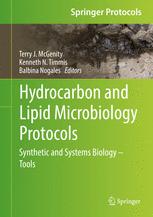

Most ebook files are in PDF format, so you can easily read them using various software such as Foxit Reader or directly on the Google Chrome browser.
Some ebook files are released by publishers in other formats such as .awz, .mobi, .epub, .fb2, etc. You may need to install specific software to read these formats on mobile/PC, such as Calibre.
Please read the tutorial at this link. https://ebooknice.com/page/post?id=faq
We offer FREE conversion to the popular formats you request; however, this may take some time. Therefore, right after payment, please email us, and we will try to provide the service as quickly as possible.
For some exceptional file formats or broken links (if any), please refrain from opening any disputes. Instead, email us first, and we will try to assist within a maximum of 6 hours.
EbookNice Team

Status:
Available4.6
18 reviewsThis Volume presents generic protocols for wet experimental and computer-based systems and synthetic biology approaches relevant to the field of hydrocarbon and lipid microbiology. It complements a second Volume that describes protocols for systems and synthetic biology applications. The wet experimental tools presented in this Volume include protocols for the standardisation of transcriptional measurements, application of uracil excision-based DNA editing for, inter alia, multi-gene assembly, the use of fluxomics to optimise “reducing power availability”, and the incorporation of non-canonical amino acids into proteins for optimisation of activities. Phenome-ing microbes, using a combination of RNA-seq and bioinformatic algorithms, is presented, as is an illustration, using methylotrophs as an example, of how the different key omics approaches constitute a pipeline for functional analysis, acquisition of a systems overview, and metabolic optimisation. Complementary computational tools that are presented include protocols for probing the genome architecture of regulatory networks, genome-scale metabolic reconstruction, and bioinformatic approaches to guide metabolic engineering. The Volume also includes an overview of how synthetic biology approaches can be used to improve biocontainment. Hydrocarbon and Lipid Microbiology ProtocolsThere are tens of thousands of structurally different hydrocarbons, hydrocarbon derivatives and lipids, and a wide array of these molecules are required for cells to function. The global hydrocarbon cycle, which is largely driven by microorganisms, has a major impact on our environment and climate. Microbes are responsible for cleaning up the environmental pollution caused by the exploitation of hydrocarbon reservoirs and will also be pivotal in reducing our reliance on fossil fuels by providing biofuels, plastics and industrial chemicals. Gaining an understanding of the relevant functions of the wide range of microbes that produce, consume and modify hydrocarbons and related compounds will be key to responding to these challenges. This comprehensive collection of current and emerging protocols will facilitate acquisition of this understanding and exploitation of useful activities of such microbes.